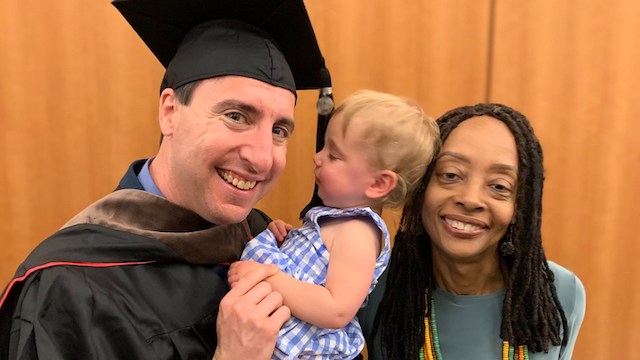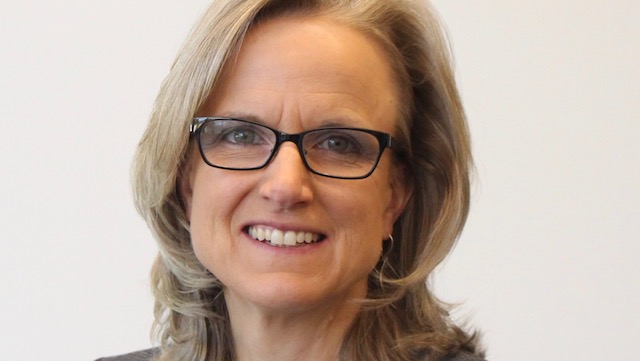I just wanted to call her.
This past December, with one day off before nine days of winter break for my toddler daughters, I sat up in bed and reached for a book that had shuffled unopened around my end table.
“BIGGER THAN BRAVERY,” read the title of an anthology of essays about, per its subtitle, “Black resilience and reclamation in a time of pandemic.” Many names graced the cover, from a half-dozen featured writers to the actor Courtney B. Vance, who gave a quote of endorsement. But only one name mattered to me:
Valerie Boyd.
She had edited the anthology. Several years earlier, she had been both a personal mentor and the program director during my pursuit of an MFA degree from the University of Georgia. Valerie had created the program. She had met me for coffee when I expressed interest. She had waited patiently when a scheduling conflict forced me to delay my application for a year. And when I finally took my seat, she alternated between inspiring and challenging, as she did virtually everyone in her orbit.
Being in that orbit, even if only possible through an application and hefty tuition, meant witnessing graceful greatness. It meant occasionally disagreeing with Valerie in class and being forced to probe my perspective in ways I hadn’t intended. It meant occasionally reading Valerie’s own work – a canon that includes years of essays, long-form stories, and the definitive biography of Zora Neale Hurston – and recognizing the narrative bar I hoped to reach. Valerie and I didn’t have much in common, but I hung on to her insights and never minded when a half-hour lunch meeting to discuss my writing turned into ninety minutes. Thanks to Valerie, I became a more thoughtful, clear-eyed writer.
A year ago this month, Valerie passed away.
Cancer, I was told. I hadn’t known. Neither had most of us in the program. We were collectively shaken.
We commiserated on a Zoom call. Many posted memories online. I moved on but never quite got over the shock. Then, ten months later, one month after its posthumous publication, I purchased Bigger Than Bravery. I opened it. I scanned the table of contents. And I set my eyes on Valerie’s introduction.
The feelings came flooding back.
In ten pages, Valerie reminded me of all I admired about her. At the top was her writing. She folded Toni Morrison and A Raisin in the Sun into stories of her childhood and passages about grief. She wrote about her recently deceased father with dignity and empathy as well as years of lived-in research. She spurned ordinary phrases for get-to-the-heart gems, describing a gambling bet as a “three-digit prayer” and saying of his death, “We weren’t ready. We still aren’t.”
Reading her words, I was reminded of the alchemy we writers aspire to achieve, the alchemy that seemed effortless when Valerie oversaw it.
Beyond her writing, I admired her purpose.
All those details about growing up on the largely Black west side of Atlanta? They tied back to the theme of the book. Her elegant prose, worthy to introduce a tome on any subject, was the opening act to a series of Black writers describing Black resilience.
Valerie’s essay was in the service of others. So was so much of her career, including my footnote within it.
Were this during the program or in the years immediately following, I would have reached out with my admiration. We didn’t communicate often, but I reached out whenever I read – or, better yet, wrote – words I thought she’d value.
I almost reached for the phone. It was my instinct, for just a moment, before reality returned.
***
I just wanted to call her.
Earlier this month, I flew to south Florida to shoot a pair of TV news stories as a national correspondent for the E.W. Scripps company. The second story – about the economic success of Black businesses in Port St. Lucie – took me to a Black business incubator in nearby Fort Pierce, led by a woman named Canieria Gardner. She gave a tour of the building and then chatted with me in its main room. I scanned the space and saw a mural of the word “LOVE”, plaques of supportive messages, and, on the back wall, a library of dozens of books by Black authors or featuring Black subjects. On one shelf was Michelle Obama’s first memoir. On another were several books by her husband. And on the middle shelf stood a whole collection of books by or about one of Fort Pierce’s most distinguished former residents: Zora Neale Hurston.
Sure enough, in the middle of the middle was Their Eyes Were Watching God, written by Valerie Boyd.
By this point, my experience reading Bigger Than Bravery was weeks in the past, buried behind the ensuing winter break and the many new memories that had followed. But seeing Valerie’s name on the cover of her most famous creation, the feelings flooded back again – this time, for a different reason.
In the days after Valerie passed, I had scanned Twitter for reactions and was amazed at how many popped up. Some were from folks like me, whose craft Valerie had helped mold. But many were from readers, particularly Black readers, who revered her many efforts through the years to champion Black voices, document Black stories, elevate Black thought, and, through works like Their Eyes Were Watching God, immortalize Black excellence. I was reminded, as I often was during my MFA studies, that as pivotal as Valerie was in my journey, she had meant so much more to so many more.
Authorial alchemy is its own miracle. Alchemy that resonates through years, sea changes, even the death of its author: that’s no less than the bedrock inspiration for nearly every journalist with giant dreams. I saw Valerie’s name – and her book – on that shelf, and I felt immense pride.
I wanted to call. But, of course, I couldn’t.
Instead, I spoke about Valerie to Canieria. I pointed her to Valerie’s other books, including the one I had started weeks earlier. I regaled her with my admiration and then informed her that Valerie was gone. In person, anyway. Certainly not in her words. Certainly not on Canieria’s wall.
And then I choked up. I restrained tears. I excused myself, retreated to the bathroom, and paced atop the tile. I breathed deep and collected my emotions. And then I paused. I knew I’d need to get back to the business of the day, but I made sure to acknowledge this beautiful moment and the beautiful person who made them possible. And I was reminded of her again a few days later, the one-year mark since her passing, and how I felt when I heard that Valerie’s soul had left her body.
I wasn’t ready. I’m still not.



